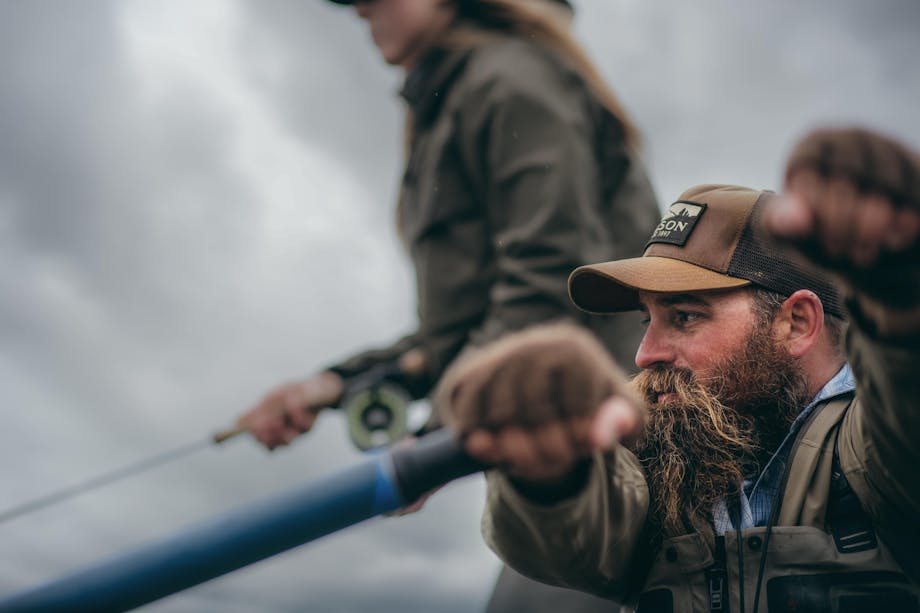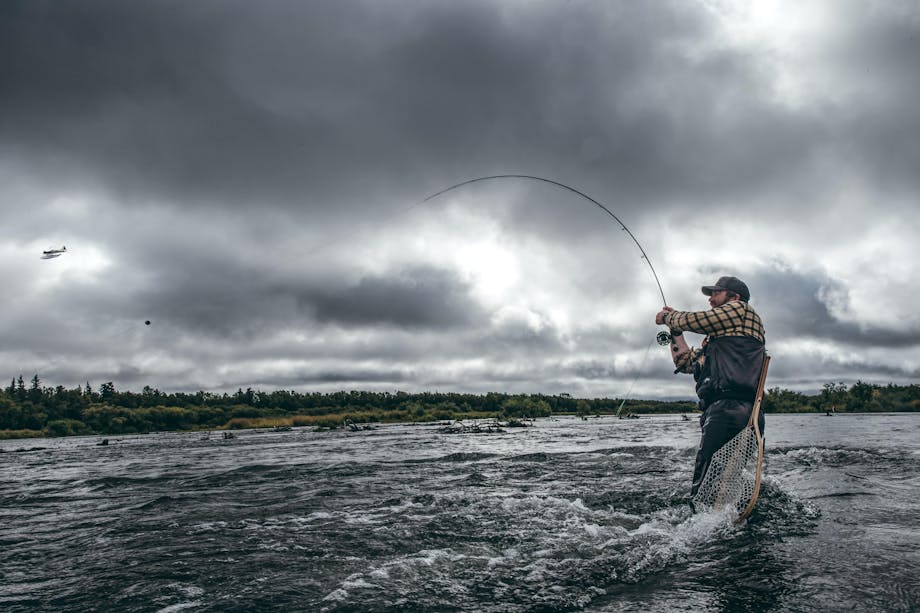In the rolling countryside of upstate New York in the early 1960s, Brett Fitzgerald was born into a life shaped by the rhythms of the outdoors. His father hunted and fished. His mother ran a small horse farm and led family outings to Lake Ontario and nearby creeks—traveling by horseback, snowmobile, dirt bike, or just on foot. It was a childhood spent close to the land and even closer to the water.
Scouting sealed the deal. Brett’s time in the Cub Scouts and Boy Scouts deepened his connection to the natural world. When chores could be dodged, he’d chase trout and bass upstream, tracing the creeks that cut through farmland and forest. That’s where he first saw the elegant web of life—how water connects to land, how every species plays a role.
He also learned something else: the people who didn’t love nature were usually the ones who hadn’t been given a chance to know it. Even then, Brett understood that access is everything.


A few days after graduating high school, Brett enlisted in the U.S. Army. He trained in Morse code and intelligence work and soon found himself overseas. After returning stateside, he became a paratrooper with the 1st Special Forces Group at Fort Lewis, Washington. It was a job that tested his limits—and brought him into contact with some of the world’s most striking wild places.
After his service, he moved to Florida to attend the University of South Florida, where he earned bachelor’s and master’s degrees in communication sciences and Disorders. Outside the classroom, he fished the bay, played rugby, and—thanks to a birthday gift from a teammate—learned to tie flies. Thirty-five years later, he still ties on the same vise.
When his daughter Ava was born, Brett started writing—at first during nap time. His articles, especially in Florida Sportsman, focused not just on techniques, but on the deeper meaning of time spent outdoors. Eventually, he penned one of their Sportsman’s Best series: Snook.
Through his writing, he crossed paths with conservation groups. One stood out: the Snook Foundation. What began as volunteer work editing newsletters would lead him to his life’s mission.
"a brighter future for all fisheries resources is in the hands of engaged and informed anglers."
-William Mote
The Angler Action Foundation: A Labor of Love
Today, Brett Fitzgerald serves as Executive Director of the Angler Action Foundation (AAF), the evolution of the Snook Foundation and a driving force in protecting gamefish, habitats, and public access to wild waters.
At the heart of AAF’s mission is habitat protection—especially the kinds of nursery habitats most anglers never see. These are the brackish, often-overlooked stretches where freshwater meets salt. Unfortunately, they’re also the first to be developed. In response, AAF has rallied volunteers to plant mangroves, spartina grass, and other native flora across South Florida. They’ve cleaned up beaches, rivers, and shorelines—always with boots in the muck and hands in the dirt.
But the work goes deeper. In recent years, AAF has raised more than $15 million to restore seagrass beds in the Caloosahatchee River and the Indian River Lagoon—two ecosystems long stressed by human impact.

In 2010, at the request of the Florida Fish and Wildlife Commission, AAF launched iAngler, a catch data collection program built to capture what fishery managers were missing: the data on fish that are released, not kept.
Since then, iAngler has become the only non-government dataset used in Florida stock assessments. It’s helped biologists understand size distributions, release rates, and location data for a range of species.
From that grew something equally powerful—a smartphone-based fishing tournament platform. It gave tournament directors the tools to host catch/photo/release events and gave AAF a new source of trend data. When seatrout catches declined in Tampa Bay, AAF spotted it in the data—and sparked a conversation with the Tampa Bay Waterkeepers about disappearing seagrass.


Teaching Conservation by Living It
Education is a pillar of AAF’s work. Brett and his team speak at fishing clubs, Rotary meetings, and community events across the state. Their message: get outside, fall in love with the water, and protect it. If you fish, log your trip in iAngler. If you care, show up.
The organization’s reach now stretches well beyond Florida. Theodore Roosevelt Conservation Partnership invited AAF to join its Policy Council in Washington, D.C., where Brett has been a consistent voice for recreational anglers and habitat protection for over 15 years. Their recent work includes the fight to protect menhaden, a vital baitfish in both the Gulf and Atlantic.
For Brett Fitzgerald, this work—boots in the sand, data on the screen, speeches at the ready—is a calling. It’s the natural evolution of a life spent outdoors, driven by a deep belief that if you give people access to wild places, they will fight to protect them.
And for the Angler Action Foundation, that fight continues—one mangrove, one seagrass bed, one fishing trip at a time.
To learn more about the Angler Action Foundation or to log your fishing trip, visit www.iAngler.org.




